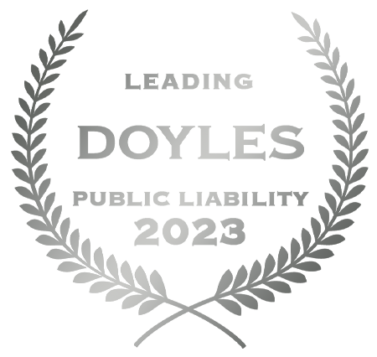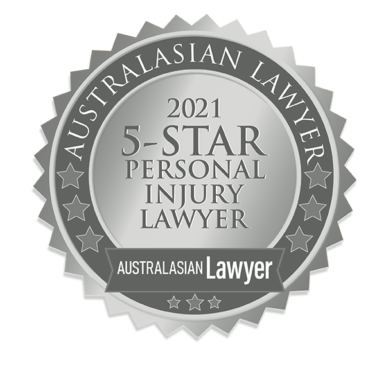
Making a TPD Claim for Mental Illness.
If you have a mental illness, you’ll know how completely debilitating it can be, and how a mental illness can make it difficult, or even impossible to continue working.
You’ll also know that people with mental health issues like depression often experience significant levels of stigma and discrimination. According to Beyond Blue, a common attitude is that people with anxiety or depression are ‘weak, not sick’. But people who’ve experienced or really understand mental illness know that you can’t simply ‘get over it’.
Fortunately, in Australia there’s a financial safety net for you if you’re unable to work due to illness or injury. Most superannuation policies include TPD (total and permanent disability) insurance, which pays you a lump sum if you have to stop work.
In this article we explain everything you need to know about TPD claims for mental illness, including:
- How to find out if you have TPD insurance (many people are covered through their super, but are unaware)
- How to find out if you’re eligible to claim
- How to get free legal advice on making a claim

Can I make a TPD claim for depression?
Yes, if your depression has diminished or eliminated your capacity as a worker, you may be eligible to make a TPD claim.
In fact, any mental illness that prevents you from returning to work may qualify for a TPD claim for mental illness, and that includes depression. However, just being diagnosed with depression doesn’t mean you automatically qualify for a TPD claim. To be eligible for a TPD claim, you’ll need to have been diagnosed with depression that interferes with your cognitive, emotional, or social abilities to the point where you’re considered totally and permanently disabled under the definition in your TPD policy.
As you can imagine, providing this proof to the TPD insurer isn’t simple, but read on to learn more about how to make a successful claim and how to get help with your claim.
I can’t work because of my mental illness. What do I do?
Here are three simple steps you can take:
Step 1: Get professional help and a diagnosis for your condition.
The best place to start is to talk to your GP. For more information on getting help refer to this article from the Black Dog Institute.
Step 2: If your mental illness has developed as a result of your job, you could claim workers compensation.
For example, if you’ve developed PTSD from witnessing a traumatic event in the course of your job, and you need time off work or treatment, you can make a workers compensation claim. For more information you can read our workers compensation payout guide.
Step 3: Find out if you can make a TPD claim.
If it’s unlikely you’ll be able to return to work at all, then a TPD claim for mental illness could be a real lifeline for you. You can call 13 15 15 to find out if you’re eligible – it’s a free service.
Can I make a TPD claim for mental illness?
Here are three questions that will help you determine if you can make a claim:
- Were you working in the 12 months prior to your mental illness being diagnosed?
- Have been unable to return to work since developing your mental illness?
- Do you have superannuation?
If you answered yes to these questions, then it’s likely you can make a TPD claim for mental illness.
Your mental illness doesn’t need to be work-related to qualify for a TPD claim. It’s not the cause of your condition that makes you eligible; it’s the impact on your ability to work.
Call 13 15 15 or chat to us now for free advice
Chat nowFind out how much you can claim.
Get startedWhich mental health conditions are covered by TPD insurance?
Any mental illness that prevents you from returning to work may qualify for a TPD claim for mental illness. Here are some examples of mental health problems that could prevent you from working:
TPD claims for depression:
In its most severe form, depression and major depressive disorders can make it impossible to properly function, and this includes going to work and performing your job role. A TPD claim for depression requires a diagnosis that your capacity as a worker has been diminished or eliminated by your depression.
Post-traumatic stress disorder (PTSD):
PTSD is a disorder triggered by witnessing or experiencing a terrifying event or series of events over time. It can last for months or years, with triggers that can bring back memories of the trauma as well as intense emotional and physical reactions.
Persistent anxiety:
Severe, persistent and disabling anxiety can make everyday tasks like leaving the house to go to work impossible. It can also cause breathing difficulties, sweating and fluctuations in heart rate.
Schizophrenia:
Schizophrenia is a common mental illness. During the early stage of the illness sleep, emotions, motivation, communication, and ability to think clearly may change. When people with Schizophrenia become unwell this is called an ‘acute episode’, and they may feel panic, anger or depression.
Bipolar disorder:
Bipolar disorder is a mental illness marked by extreme shifts in mood. Symptoms can include an extremely elevated mood called mania. They can also include episodes of depression. Bipolar disorder is also known as bipolar disease or manic depression.
Panic attacks:
Similar to PTSD, survivors of accidents that caused a life-changing injury or illness may have persistent panic attacks triggered by sights, sounds, or smells that remind them of their accident.
Physical symptoms induced by mental illness:
These can include headaches, dizziness, chest pain, nausea and muscle tension. Mental health conditions can also worsen conditions such as heart disease, high blood pressure and asthma.
There’s no specific “list” of mental health conditions that qualify for a TPD claim for mental illness. As long as you’ve been diagnosed with a mental health condition that prevents you from continuing to work, then you may qualify for a TPD claim.
TPD claim case study: mental illness claim denied, then eventually awarded $800k payout.
Sandra, 38, was involved in a serious car accident and suffered a compound fracture of her leg. Despite a number of surgeries and extensive treatment, tragically Sandra’s leg had to be amputated.
As is the case with many amputees involved in car accidents, Sandra developed Post Traumatic Stress Disorder. This mental illness combined with her physical disability made it virtually impossible for Sandra to return to work.
Sandra knew about TPD and decided to pursue claims on her two superannuation policies. But the insurer denied her claims on the basis that she failed to submit enough medical evidence supporting her psychological injury.
Sandra contacted Law Partners, and we immediately arranged for Sandra to be assessed by an independent psychologist, completed a thorough application on her behalf, and wrote a submission to the super fund outlining why Sandra’s claim should be approved.
In just a few months, we managed to overturn the insurer’s decision and Sandra was rightfully awarded an $800,000 TPD payout on her two eligible superannuation policies.
How do I know if my insurance covers a TPD claim for mental illness?
TPD insurance covers all injuries, both physical and psychological. Physical injuries can often lead to some form of damage to mental health, and insurers understand this and account for it in their policies.
In short, if you’ve got TPD cover under a superannuation fund, employment, a union, a financial institution or any other means, you’ll be covered for a TPD claim for mental illness.
If you need help you can call Law Partners on 13 15 15 and one of our TPD specialists will review your cover and explain your full lump sum entitlements – it’s a free service.
Does it matter what caused my mental illness/ depression?
No, it doesn’t matter, and it doesn’t have to be work-related to qualify for a TPD claim. Whether your mental illness was caused by a traumatic event, has developed over time or come on suddenly and out of the blue, if it’s been diagnosed and forced you to stop working then you can lodge a TPD claim for mental illness.
The main consideration when you make a TPD claim for mental health is that your capacity as a worker has been diminished or eliminated due to your mental illness.
How do I make a TPD claim for mental illness/ depression?
To make a successful TPD claim for mental illness, you’ll first need to contact your superannuation fund. They’ll begin by asking you to fill out a number of forms and carry out an initial assessment. Following this, your TPD claim for mental illness will be passed onto the insurer to carry out their own assessment and come to a decision.
Although mental health is covered under TPD insurance, these claims can be harder to prove compared to physical injuries or illnesses. Claims can become complicated and drawn out as insurers may dispute your eligibility to claim or ask for further evidence to back up your claim. As a result, many people abandon their claims out of frustration.
The key to a successful TPD claim is completing a thorough application that provides all the necessary documents and evidence to substantiate your claim. That way, you spend less time going back and forth responding to requests from the insurer for more information and evidence and give your claim a much higher chance of being approved.
Where can I get help with my TPD claim for mental illness?
A TPD claim specialist can manage your TPD claim for mental illness on your behalf. A good TPD specialist will make sure your claim is prepared thoroughly to meet all your insurer’s requirements, includes all the required evidence, and is assessed and approved as quickly as possible.
Law Partners is Australia’s largest specialist personal injury firm, and we have a team of TPD specialists who can manage your claim for you, wherever you are in Australia. We work on a no win no fee basis, and we win over 99% of our cases.

Shane Butcher
Principal
An accredited specialist in personal injury law and spokesman for the Australian Lawyers Alliance, with the best part of 20 years’ experience in assisting injured Australians receive everything they’re entitled to.
Related articles.
Do I have a case?
Our senior lawyers will assess your case for free.











